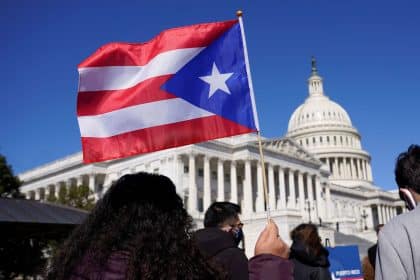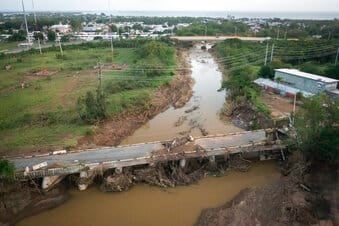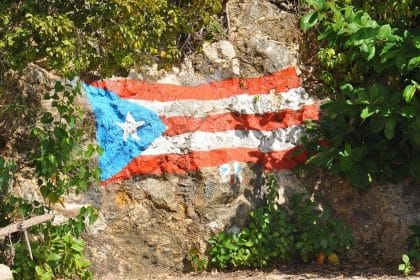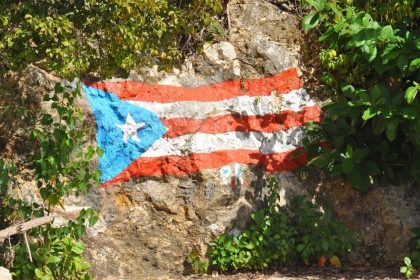Puerto Ricans Poised to Decide Whether to Seek Statehood
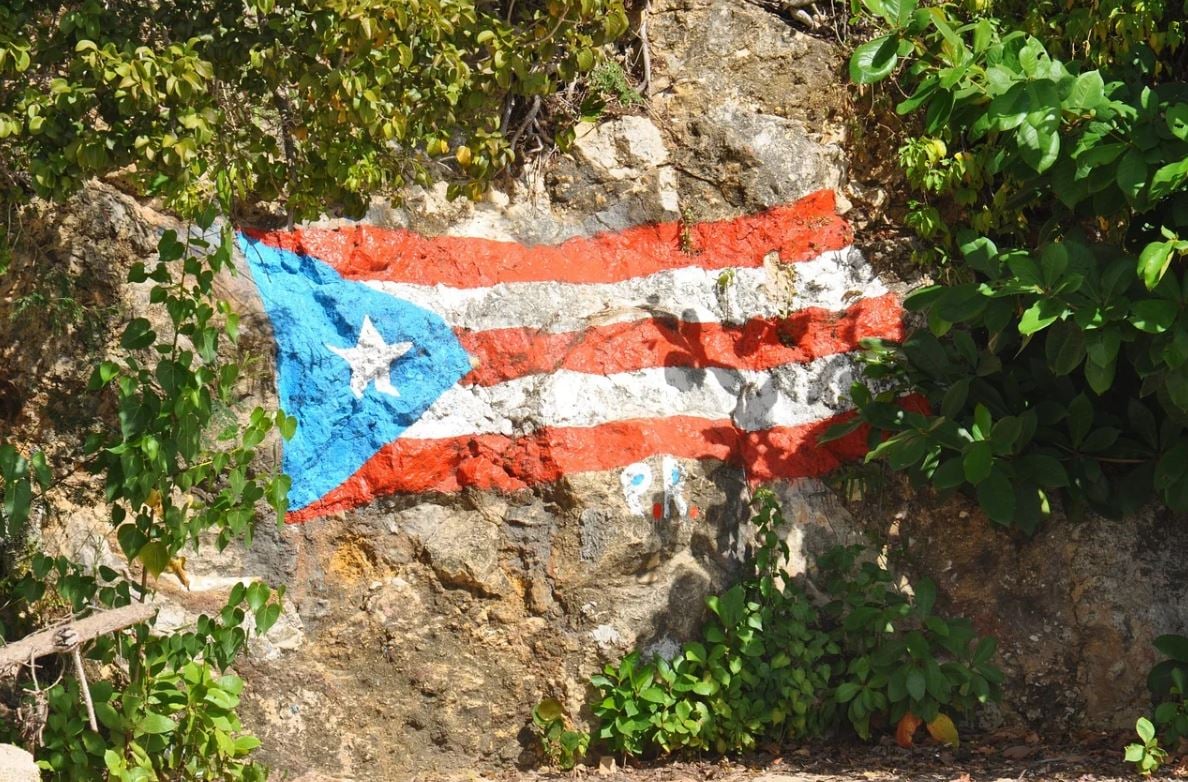
Residents of Puerto Rico will be casting a telling vote this November — one that could decide whether the island — now a territory of the United States — will seek statehood or not.
While the referendum is non-binding because both Congress and the president would have to agree to bring an end to the current 122-year-old territorial relationship between the U.S. and the island, it already has strong support from several members of Congress.
These include Reps. Stephanie Murphy, D-Fla., José Serrano, D-N.Y., Darren Soto, D-Fla., Don Young, R-Alaska, and Rob Bishop, R-Utah.
They and 40 other members of Congress introduced bipartisan legislation last year to begin Puerto Rico’s admission process as a state of the union.
In addition to mandating a “federally-sponsored” vote in which the people of Puerto Rico would have the opportunity to reaffirm their support for statehood, as expressed in two previous status plebiscites in 2012 and 2017, it would establish the same transition process under which Hawaii and Alaska became states.
“For more than 120 years, Puerto Rico’s status as a U.S. territory has deprived island residents of democracy and equality,” Rep. Murphy said. “The best path forward is for Puerto Rico to hold a fair, federally-sponsored vote on whether it wants to become a state.
“I hope the people of Puerto Rico confirm they support statehood,” she said. If they do, Murphy has promised to work across party lines “to ensure Congress respects their wishes.”
A Long and Winding Road
In many ways, the relationship between the U.S. and Puerto Rico is a mystery to most Americans.
The island, along with Guam and the Philippines, was ceded to the United States by Spain in the Treaty of Paris that ended the Spanish-American War in 1898.
Thereafter, Puerto Rico was ruled by the military and a governor appointed by the president of the United States. Military rule ended in 1900, but not much else happened in regard to the status of the island or its residents until March 1917, when the Jones-Shafroth Act became law.
The Act formally made Puerto Rico a territory of the United States and guaranteed U.S. citizenship to Puerto Ricans born on or after April 25, 1898.
In 1950, Congress authorized Puerto Rico to write a constitution; despite its passage, the status of Puerto Rico never changed.
Puerto Ricans are American citizens who are exempt from most federal income taxes and have some degree of local autonomy, but in return they get much less federal aid than the states and have no electoral votes or voting members of Congress.
Meanwhile, evidence that things move slowly when it comes to the island’s future continues to mount. In fact it wasn’t until 2014 that Congress passed a law making $2.5 million available for the island to hold the first federally sponsored referendum on its future.
Under the provisions of the law, Puerto Rico’s governor was required to submit the proposed ballot and voter education materials to the U.S. Department of Justice. If the DOJ deemed them to be consistent with U.S. law, the money would be released, and the vote considered federally sponsored.
But for a number of reasons that vote hasn’t been scheduled until now. Though Puerto Rico has its share of Republicans and Democrats, its voters generally divide themselves along different ideological lines — pro-statehood, pro-independence, and status quo.
Over the past half century, the status quo has gotten the most votes in a string of local referendums, starting in 1967. These sentiments appeared to change in 2012, and then even more dramatically in 2017, when 97% of voters supported statehood.
However, that most recent vote was marred by a boycott by one of the island’s three major political parties and turnout was just 23%.
Across all these votes, support for full independence has never approached double digits.
Despite calls for another vote, Gov. Alejandro Garcia Padilla, who was strongly in the anti-statehood camp, prevented one from happening between 2012 and 2016.
Padilla was replaced as governor by the strongly pro-statehood Ricardo Rosselló, who, along the PNP legislature, oversaw the vote in 2017. However, he and the legislature tried, to get the Justice Department to sign off on the vote.
Rosselló has since been replaced by Gov. Wanda Vázquez Garced, who also supports statehood and re-applied for the DOJ’s money.
In May, she announced the next vote on the issue will be on Nov. 3 — and she’s moving forward, without waiting for the DOJ to give its blessing.
“Our people will have the opportunity once and for all to define our future,” the governor said in signing the referendum bill. “It’s never too late to be treated as equals.”
House Bill Mirrors A Time-Honored Process
Jenniffer Gonzalez-Colon, Puerto Rico’s representative in Congress said she and her colleagues in Congress are seeking the same goal with their bill.
“This historic bill places us on a path towards the political equality that our people deserve,” she said in a written statement. “The American citizens of Puerto Rico will have the opportunity to participate in a federally-sponsored vote and be asked the following question: ‘Should Puerto Rico be admitted as a State of the Union, yes or no?’. This is similar to what happened in Alaska and Hawaii, which is what ultimately makes this legislation different,” explained González-Colón.
The bill delineates a process consistent with the Constitution and laws of the United States, including Public Law 113-76, which funds a nonpartisan voter education process and a plebiscite that would resolve Puerto Rico’s political status.
If the people of Puerto Rico vote in favor of becoming a state, the president would be required, no later than 30 months after the vote, to issue a proclamation admitting the Island as a state and beginning the transition process.
Of course, all this assumes the bill can pass Congress and win the approval of the president.
Right now, Puerto Rico’s biggest supporters on the Hill are people like Reps. Murphy, Soto and Serrano, who have witnessed first-hand the spike in island residents relocating to the U.S. mainland in the wake of hurricanes Irma and Maria, and a string of strong earthquakes — all before the start of the coronavirus pandemic.
Congress has not moved legislation in response to any of the earlier referendums and there’s no guarantee it would next year, either. President Trump’s clearest statement on the matter, two years ago, was that “Puerto Rico shouldn’t be talking about statehood until they get some people that really know what they’re doing.”
His Democratic challenger, Joe Biden, has not taken a firm stand on the island’s future.
In a speech last fall, Rep. Murphy explained how she sees the situation.
Statehood, she said, is “the only way for Puerto Ricans to have full democratic rights and full equality within this nation, which they have contributed so much to.
“I think men and women from Puerto Rico, who serve in the U.S. military with courage and patriotism, should be able to vote for their president and commander-in-chief,” she continued. “I think they should have two senators and five representatives in Congress to defend their interests, [and] I think they should be treated equally under all federal health and economic development programs.
“I support statehood for Puerto Rico because I support equality for the people of Puerto Rico,” Murphy added. “They deserve to have the same rights and responsibilities as their fellow citizens in Florida and every other state. Puerto Rico has earned its star on the American flag, and I’ll do everything within my power to make that happen.”

















